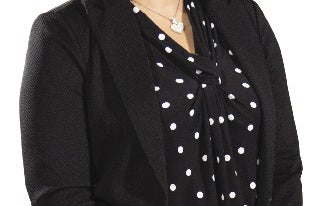Do you feel like you have to leave a part of who you are behind when you enter your workplace each day? Perhaps you do this in order to fit in, to feel accepted, to be safe, or to make others feel comfortable.
Get Instant Access to This Article
Subscribe to Worcester Business Journal and get immediate access to all of our subscriber-only content and much more.
- Critical Central Massachusetts business news updated daily.
- Immediate access to all subscriber-only content on our website.
- Bi-weekly print or digital editions of our award-winning publication.
- Special bonus issues like the WBJ Book of Lists.
- Exclusive ticket prize draws for our in-person events.
Click here to purchase a paywall bypass link for this article.
Do you feel like you have to leave a part of who you are behind when you enter your workplace each day? Perhaps you do this in order to fit in, to feel accepted, to be safe, or to make others feel comfortable.
Early in my professional career, I learned through observation being emotionally stoic was revered. A colleague of mine shared how she broke down in tears during the review of a student applicant who had endured and overcome great adversity in her home life. This colleague was told her emotion was getting in the way of making rational admissions decisions. To be clear, my colleague expressed emotion, but she was not driven by, nor making, emotionally based decisions. She made decisions based on facts and logic. Even so, over time her overtly compassionate and empathetic displays of emotion were seen as somehow weak.
I find authentic reactions refreshing. The pure humanity is relatable, and the vulnerability they create bridges meaningful connections between people. As a young person committed to human service work, with naïve and passionate ideals coming right out of college, I admired the competency and the sensitivity of my more emotional colleagues, because they were expressive in a way I knew my most authentic self to be. Yet, I was careful never to let my tears show.
A dear colleague once said to me, “Bonnie, let me know what you need, I see your dry tears.” I’ll never forget that. At work, I used a lot of energy to shut down, repressing my expression, in order to show up with neutral emotion. My emotional center did not disappear, but I did keep my reactions and my emotions close to my sleeve, until one day I didn’t have to try so hard to repress them anymore; I had grown into being numb. This was the end of an era when innately feminine business women were accepted into high power positions as decision makers, as long as they showed up like their male counterparts (dressed in a suit, or more masculine) and acting like men (less emotional). Are you tired of being an actor? Tired of performing your best inauthentic self? Tired of wearing clothes that don’t agree with you? Tired of wearing your hair in a style acceptable at the office, perhaps one less ethnic, as my colleague was told when she was in law school?
Years ago, I met an evangelist woman. She told me she couldn’t bring the deeply faithful part of herself to work because any talk of religion made her co-workers uncomfortable. She wanted to talk to others within the confines of appropriate down time, for example over lunch, about the goodness of God, but she was told by her supervisor not to have conversations about religion, especially not in any personal way. A female, lesbian employee in upper-management told me she used to be criticized for wearing masculine clothing (a suit, a bowtie, or even khaki pants and a buttoned-down shirt) by her supervisor and frowned upon by her co-workers. My first friend at college, a black female, took her natural braids out and straightened her hair for the first time for her first professional job interview post-graduation because she was fearful she would be negatively judged (implicit biases as the culprit) if she were to keep her natural braids when making her first impression.
Most organizations today claim to be committed or striving towards creating inclusive work environments. This vision comes to life when all employees feel a sense of belonging; the freedom to be authentic to who they are. Inclusion does not mean in order to be invited into the organization (and to stay) you must conform to the cultural/social norms of the majority. Of course, we do have to follow some professional norms, a common set of expectations and behaviors to support the organization to be healthy and thriving. Inclusion means your individuality, your uniqueness, all that makes you who you are – your diversity – is so vitally important that every person invited to the organization, including you, will have their needs met so everyone in the workplace will have access to the same opportunities to learn, develop, work, socialize, and thrive.
Bonnie J. Walker is the interim director of equity and inclusion at Worcester Academy, plying this arena in education in Mass. for 16 years. Contact her at bonnie.walker@worcesteracademy.org.

